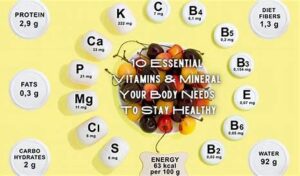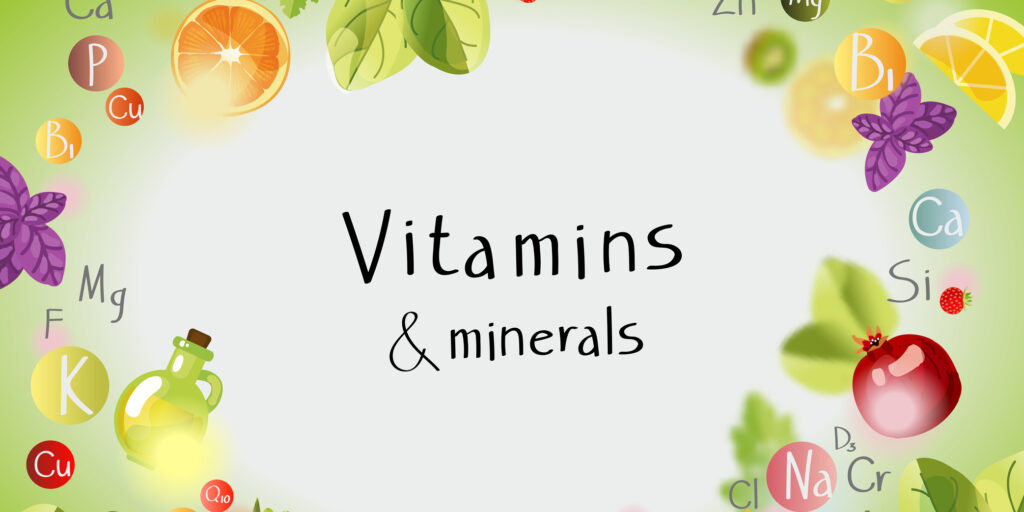Read time 5 minutes
This blog is another opportunity to feel grateful. Thank you, dear Universe, you continue to bless me with recovery and health.
Next time when you reach for those vitamin and mineral-rich foods, remember it’s not just a tasty treat– it’s our body fuel.

Living with a rare chronic illness is like waking up each day in a body you no longer recognize. I should know, I was diagnosed with Isaacs’ Syndrome. It is a neuromuscular disorder that creates relentless muscle hyperactivity.
And if that wasn’t enough, I was also diagnosed with Lyme disease. It is a bacterial illness that gets transmitted through ticks. Also, Glaucoma (an eye-related disease that damages the optic nerves), and Membranous Glomerulonephritis (a progressive kidney condition).
My journey has been anything but ordinary.
It involved countless hospital visits, tests, physical struggles, and emotional breakdowns. Most surprisingly, a deep dive into the healing power of essential vitamins and minerals.
This post is about how I turned nutrient deficiency from a silent enemy into a foundation for recovery.
The Connection Between Micronutrients and Neurological Health
Vitamins and minerals are the unsung heroes of our body’s functioning. While many associate them with general wellness, their impact on neurological health is profound. A deficiency can disrupt neuro metabolism, creating a ripple effect of dysfunction across the nervous system.
Here’s how some key nutrients influence brain health:
NutrientPrimary Role in Neurological HealthVitamin ASupports immune function, cell growth, and eye healthVitamin B12Vital for nerve function and cognitive clarityVitamin CProtects against oxidative stress and inflammationVitamin DLinked to mood regulation and autoimmune disordersVitamin EAntioxidant effect improves brain functionOmega-3 Fatty AcidsPromotes brain health, reduces inflammation
Living with Isaacs’ Syndrome: A Personal Account
I will never forget the first time it hit me, lying in bed, hoping for sleep, and suddenly feeling persistent twitches like a ticking clock inside my body.
The rippling movements under my skin were bizarre and frightening, increasing in frequency and strength. Muscle tension, cramps, and weakness made daily activities like walking or climbing stairs agonizing.
Isaacs’ Syndrome is an autoimmune neuromuscular disorder, causing muscle stiffness, cramping, and fatigue. My diagnosis felt like a life sentence, there’s no permanent cure, and treatments only offer partial relief.
The Turning Point: How Supplements Changed My Life

After various treatments offered little relief, my neurologist suggested something unconventional.
Now, this had a profoundly impactful: targeted vitamins and mineral supplementation.
For the first time in months, I felt a glimmer of hope. I committed to the routine, carefully taking prescribed supplements and integrating nutrient-rich foods. Within three weeks, I started noticing improvements in:
- Energy levels
- Muscle function
- Gut and appetite health
- Mental clarity
- Reduced pain and cramps
The Vitamin Protocol That Helped Me Heal
Below is a breakdown of the vitamins and minerals that became my therapeutic allies, with specific symptoms they addressed and how they changed my life.
1. Vitamin B Complex (B1, B6, B12)

Role: Supports nerve repair, brain function, and red blood cell production.
My Symptoms:
- Chronic fatigue
- Mood swings
- Weight loss
- Neuropathy
Treatment Strategy:
- Blood tests showed low levels.
- Deficiency due to poor diet and prolonged use of antacids.
- B-complex supplements were prescribed.
Impact: My walking improved, mood stabilized, and energy levels rose gradually.
2. Magnesium

Role: Regulates muscle and nerve functions; combats stress and anxiety.
My Symptoms:
- Muscle cramps
- Anxiety
- Fatigue
- Involuntary twitching
Treatment Strategy:
- Diagnosis through serum magnesium test.
- Deficiency linked to diarrhea and diabetes.
- Supplements combined with magnesium-rich foods.
Impact: Reduced muscle spasms and twitching dramatically.
3. Vitamin D

Role: Influences immune regulation and reduces neuroinflammation.
My Symptoms:
- Frequent infections
- Hair thinning
- Muscle weakness
Treatment Strategy:
- Deficiency confirmed through lab testing.
- Low sunlight exposure and poor absorption due to illness.
- Daily supplements and moderate sun exposure.
Impact: Immunity improved and inflammation reduced noticeably.
4. Vitamin E

Role: Protects neurons and supports motor functions.
My Symptoms:
- Difficulty walking
- Muscle pain
- Numbness
Treatment Strategy:
- Blood test revealed deficiency.
- Associated with poor dietary fat intake.
- Added nuts and sunflower seeds into my diet alongside supplements.
Impact: Pain management became easier, and mobility slowly returned.
5. Folate (Vitamin B9)

Role: Essential for DNA synthesis, nerve cell function, and red blood cell production.
My Symptoms:
- Fatigue
- Muscle weakness
Treatment Strategy:
- Lab results confirmed deficiency.
- Nut intake—especially Brazil nuts—proved helpful.
Impact: Noticeable improvement in stamina and reduced muscle aches.
6. Calcium

Role: Facilitates muscle contractions, neurotransmitter release, and bone strength.
My Symptoms:
- Muscle cramps
- Tremors
- Fatigue
Treatment Strategy:
- Supplements and calcium-rich foods like spinach and seeds.
- Medical conditions contributed to poor calcium absorption.
Impact: Strengthened bones and reduced tremor frequency.
7. Omega-3 Fatty Acids

Role: Enhances brain plasticity and reduces inflammation.
My Symptoms:
- Eye discomfort
- Joint pain
- Mood fluctuations
Treatment Strategy:
- Blood test indicated low DHA/EPA levels.
- Supplements alongside walnuts and chia seeds.
Impact: Boosted mood and eased neuroinflammatory symptoms.
8. Vitamin C

Role: Antioxidant defense for nerves and immunity.
My Symptoms:
- Nerve pain
- Frequent infections
- Eye dryness
Treatment Strategy:
- Deficiency confirmed through blood test.
- Supplements and antioxidant-rich foods added.
Impact: Felt less prone to illnesses and better neurological balance.
Navigating Neurological Disorders with Nutritional Support

Living with a rare disease forces you to learn things most people never have to. Over time, I realized that nutrition plays a far more critical role in neurological recovery than I ever imagined.
Here are some broader lessons I learned:
- Always listen to your body—it speaks louder than you think.
- Consult professionals before making any dietary or supplement changes.
- Embrace a balanced, anti-inflammatory diet.
- Advocate for yourself; your journey is unique and worth exploring.
Final Thoughts: Hope Is a Daily Practice
This isn’t a fairy-tale ending. I still live with Isaacs’ Syndrome and other conditions. But today, I’m stronger, better informed, and far more hopeful.
Incorporating essential vitamins and minerals into my health routine has given me a powerful toolkit to manage symptoms and improve quality of life.
To anyone fighting a chronic illness, you are not alone. Your pain is real, your story matters, and healing is possible, even in the smallest ways. Trust your intuition, seek guidance, and give your body the nutrients it desperately needs.
DISCLAIMER
The views expressed above in this article are the author’s own and do not represent any kind of medical advice.


